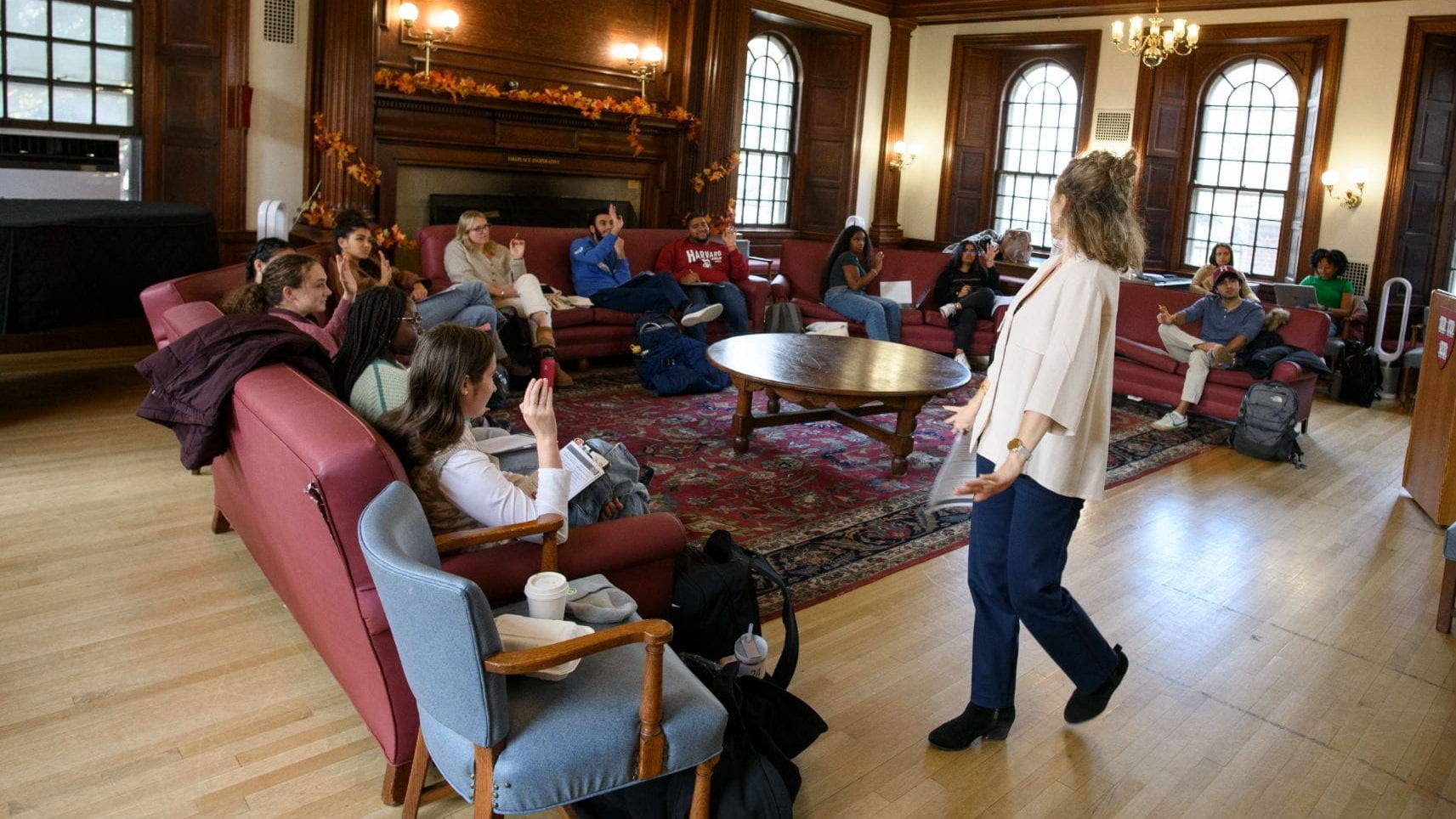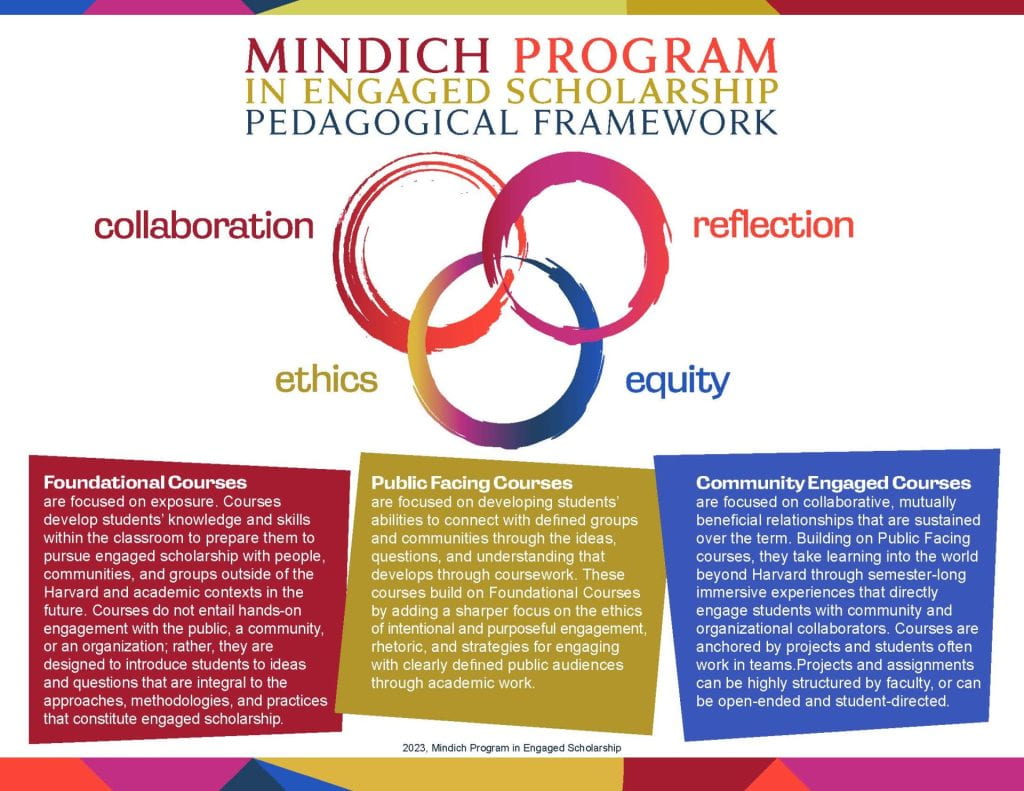
Faculty Resources
Background video of aerial view of Harvard University and other b roll video of the inside of campus buildings
Engaged Scholarship is an orientation to teaching and learning that connects “the rich resources of the university to our most pressing social, civic, and ethical problems” (Boyer, 1996). These connections are distinguished by pedagogies and scholarly processes that are action-oriented and that center ethical engagement, equity, reflection, and collaboration.
The Mindich Program in Engaged Scholarship (MPES) encompasses a portfolio of courses that link academics to real-world questions, challenges, and opportunities, and stimulate student and faculty collaboration with communities beyond the Harvard context. MPES courses are rooted in established core practices of community engagement:
- Recognizes community as a unit of identity;
- Builds on strengths and resources within communities;
- Facilitates collaborative, equitable involvement of all partners;
- Integrates knowledge for mutual benefit of all partners;
- Promotes co-learning and empowering processes that attend to social inequalities;
- Involves a cyclical and iterative process;
- Addresses social issues from both positive and ecological perspectives;
- Disseminates findings and knowledge gained to all partners;
- Involves long-term commitment by all partners (Israel et alia, 1998).

The MPES framework for affiliate courses encompasses three levels of intensity:
- Foundational Courses provide an introduction to the questions and methods of engaged scholarship in a low-stakes classroom environment;
- Public Facing Courses teach students how to communicate with defined groups and communities through coursework;
- Community-Engaged Courses co-create knowledge and materials together with community partners.
For more information about MPES Frameworks and Core Principles, please visit our Canvas site (requires HarvardKey).

Consultations
If you’re interested in working with MPES to develop or support an undergraduate Engaged Scholarship course, please reach out to engagedscholarship@fas.harvard.edu to request a consultation.
MPES Support for Affiliated Courses
- Consultations and pedagogical support (from brainstorming to facilitation) for courses with engaged and community-driven approaches, modules, and assignments
- Robust faculty community
- Funding for course staff (TF, TA, RA, CA) to support immersive course design and/or implementation for Community Engaged courses with significant logistical or relational demands
- Funding for limited course expenses that support relational work with communities or the public
- Engaged Scholarship resources, including the MPES Digital Library and MPES Canvas Site
Learning Communities
To learn more about the pedagogy and practice of Engaged Scholarship, consider joining one of our formal or informal Faculty Learning Communities.
Expos+MPES Learning Community
The Expos+MPES Learning Community is a year-long program for preceptors in the Harvard College Writing Program who wish to develop a Foundational Mindich Expos 20 course. Fall semester meetings develop an understanding of the conceptual framework of Engaged Scholarship, while Spring semester meetings workshop participants’ course themes, assignments, and scaffolding. Applications open in June.
Pedagogy of Engaged Scholarship Group
MPES also hosts an informal “Pedagogy of Engaged Scholarship” group for current and prospective MPES faculty. All are welcome! These lively conversations dive deep into issues, questions, strategies, and methods associated with one engaged scholarship principle or learning goal at a time.
Questions about our Faculty Learning Communities? Contact engagedscholarship@fas.harvard.edu.


